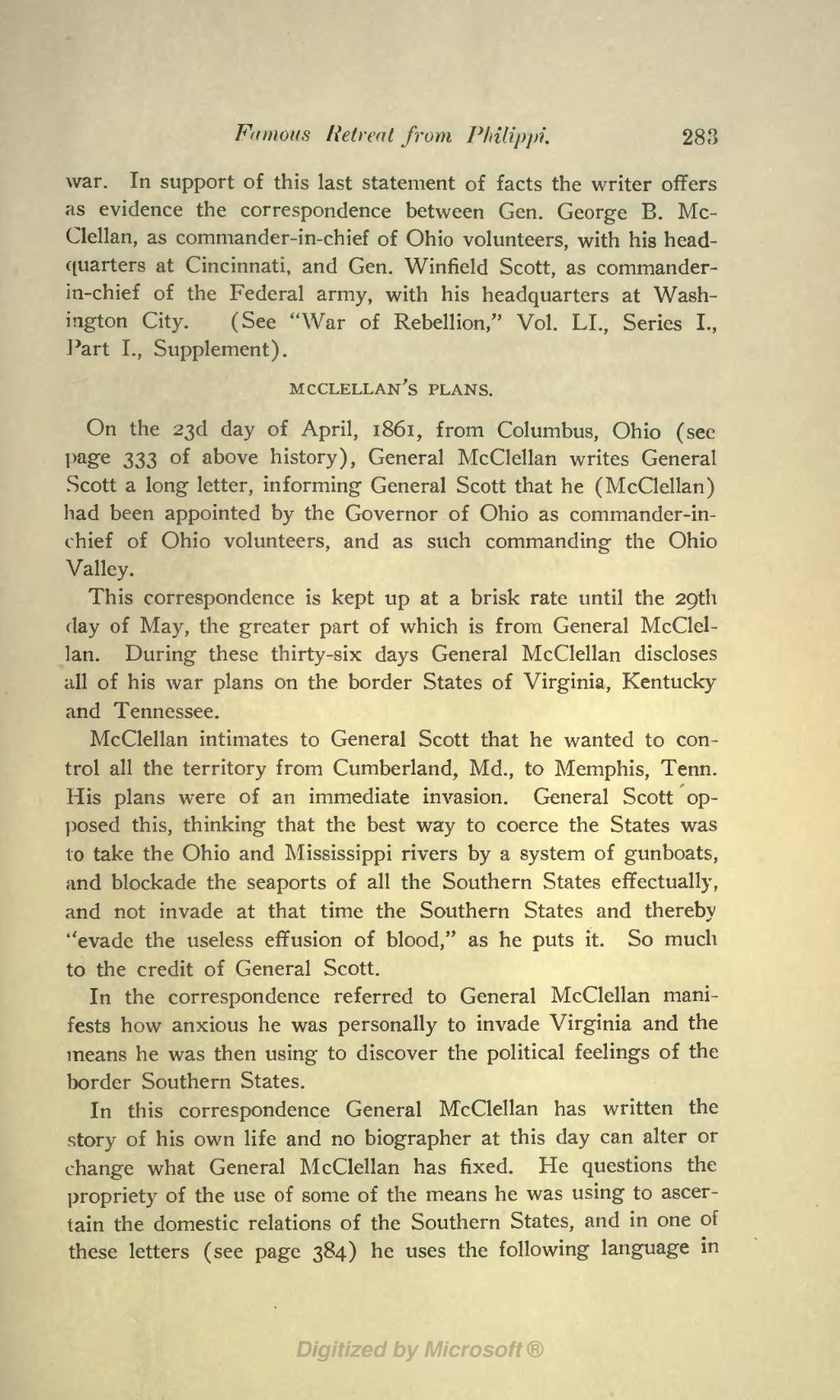Famous Retreat from P/nh'/)/>i. 288
war. In support of this last statement of facts the writer offers as evidence the correspondence between Gen. George B. Mc- Clellan, as commander-in-chief of Ohio volunteers, with his head- quarters at Cincinnati, and Gen. Winfield Scott, as commander- in-chief of the Federal army, with his headquarters at Wash- ington City. (See "War of Rebellion," Vol. LI., Series L, Part L, Supplement).
MCCLELLAN'S PLANS.
On the 23d day of April, 1861, from Columbus, Ohio (see P a ge 333 of above history), General McClellan writes General Scott a long letter, informing General Scott that he (McClellan) had been appointed by the Governor of Ohio as commander-in- chief of Ohio volunteers, and as such commanding the Ohio Valley.
This correspondence is kept up at a brisk rate until the 2Qth day of May, the greater part of which is from General McClel- lan. During these thirty-six days General McClellan discloses all of his war plans on the border States of Virginia, Kentucky and Tennessee.
McClellan intimates to General Scott that he wanted to con- trol all the territory from Cumberland, Md., to Memphis, Tenn. His plans were of an immediate invasion. General Scott op- posed this, thinking that the best way to coerce the States was to take the Ohio and Mississippi rivers by a system of gunboats, and blockade the seaports of all the Southern States effectually, and not invade at that time the Southern States and thereby "evade the useless effusion of blood," as he puts it. So much to the credit of General Scott.
In the correspondence referred to General McClellan mani- fests how anxious he was personally to invade Virginia and the means he was then using to discover the political feelings of the border Southern States.
In this correspondence General McClellan has written the story of his own life and no biographer at this day can alter or change what General McClellan has fixed. He questions the propriety of the use of some of the means he was using to ascer- tain the domestic relations of the Southern States, and in one of these letters (see page 384) he uses the following language in
